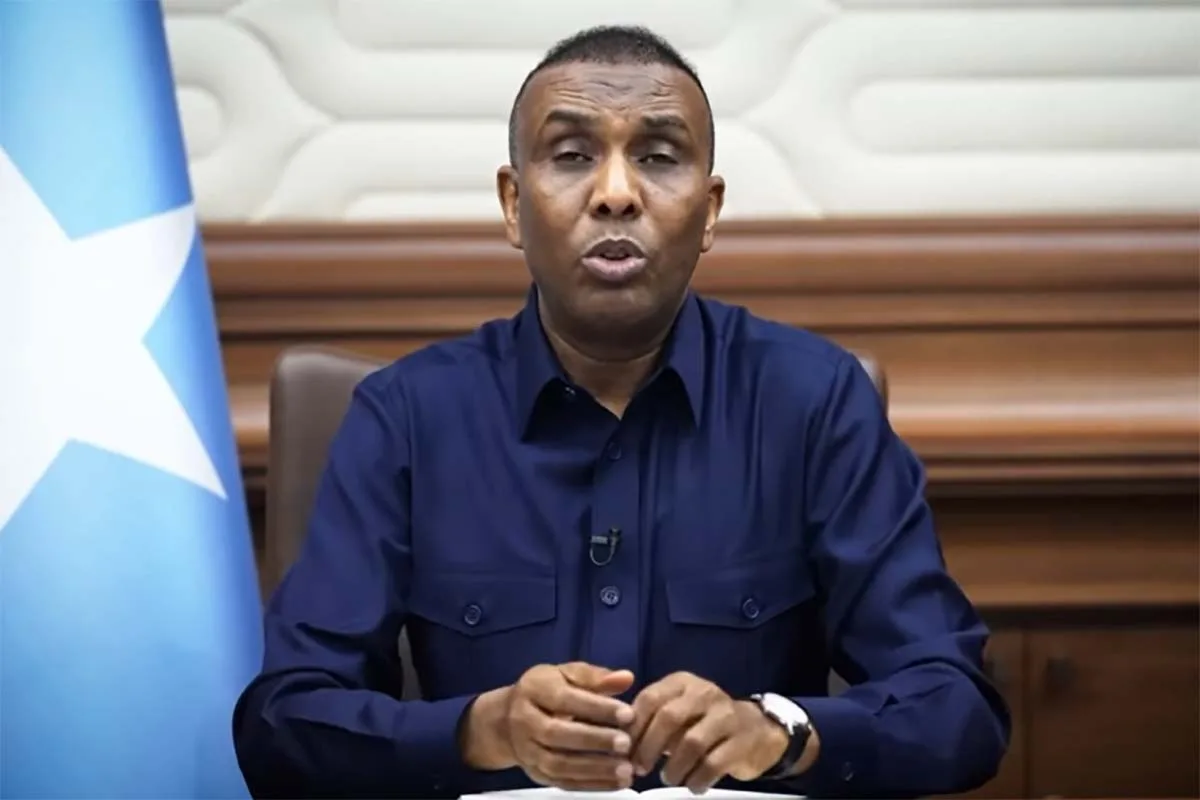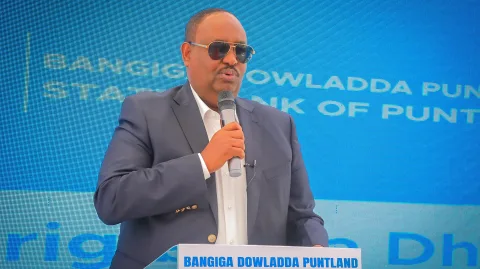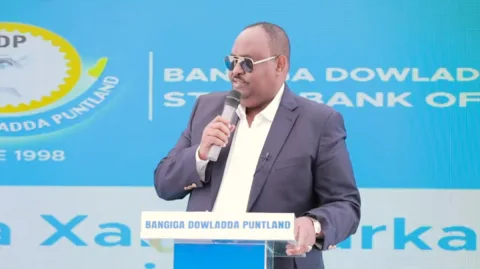In Somalia’s complex political landscape, the tenure of Prime Minister Hamse Abdi Barre presents a compelling…

In Somalia’s complex political landscape, the tenure of Prime Minister Hamse Abdi Barre presents a compelling case study of how institutional weakness and centralized power can undermine democratic governance. As Somalia grapples with mounting political tensions, the trajectory of its current prime minister raises fundamental questions about leadership, representation, and the future of federal governance in the country.
From Party Activist to Prime Minister
Hamse Abdi Barre’s political journey is noteworthy not for its depth but for its opportunistic turns. His transformation from a relatively unknown figure in the Peace and Development Party (PDP) to Somalia’s prime minister illustrates the often-unpredictable nature of Somali politics. His pivotal role in Ahmed Madobe’s controversial 2019 Jubaland election – where he implemented the contentious “three MPs” selection method – demonstrates his early willingness to challenge traditional political processes.
The Appointment’s Hidden Agenda
The June 2022 appointment of Hamse Abdi Barre as Prime Minister made history as the first time someone from the Absame community of Darood clans held the position since 2000. However, what appeared as a milestone in clan representation may have concealed a more strategic purpose. Sources suggest his appointment was calculated to diminish the constitutional power of the prime minister’s office, effectively reducing it to a ceremonial role.
The Governance Paradox
The current administration faces a peculiar paradox. While it can claim significant diplomatic achievements – debt relief, lifting of the arms embargo, and East African Community membership – these successes mask deeper institutional problems:
- Constitutional Crisis: The modification of the constitution has shifted power from a parliamentary system to a presidential one, fundamentally altering Somalia’s governance structure.
- Federal Disintegration: Rather than unifying the federal member states, PM Hamse’s tenure has seen increased political fragmentation:
- Puntland remains alienated from national politics
- Development projects face political obstruction
- His home region of Jubaland has withdrawn support
- His September 2024 Baidoa visit ended in failure
- Loss of Political Base: Perhaps most critically, Prime minister Hamse Abdi has lost support from his own community, failing to maintain the very constituency he was appointed to represent.
The Leadership Vacuum
The prime minister’s office, traditionally responsible for government coordination, national unity, and political direction, has been notably ineffective under PM Hamse’s leadership. This vacuum has allowed President Hassan Sheikh Mohamud to expand his influence, creating an imbalanced power dynamic that threatens Somalia’s democratic institutions.
The Question of Resignation
The growing calls for PM Hamse’s resignation reflect more than just political maneuvering. They represent a genuine crisis of leadership at a critical juncture in Somalia’s development. However, the situation is complicated by President Hassan Sheikh’s apparent opposition to Hamse’s departure, creating a political deadlock that serves neither the government nor the nation’s interests.
Looking Forward
Somalia’s political future requires more than just a change in leadership. The country needs:
- Restoration of constitutional checks and balances
- Genuine commitment to federal power-sharing
- Leadership capable of bridging clan divisions
- Strengthened institutional frameworks that survive individual leaders
Conclusion
Hamse Abdi Barre’s tenure as Prime Minister may well be remembered as a cautionary tale about the dangers of centralizing power at the expense of federal governance. As pressure mounts for his resignation, the broader question facing Somalia is not just about one leader’s future, but about the kind of political system the country needs to overcome its deep-rooted challenges.
The path forward requires not just new leadership, but a fundamental recommitment to the principles of shared governance and institutional strength that Somalia’s federal system was designed to protect. Whether Hamse Abdi Barre chooses to resign or continues in his increasingly isolated position, his experience highlights the urgent need for Somalia to rethink its approach to political leadership and power-sharing.
Mohamed Osman
Horseed Media





